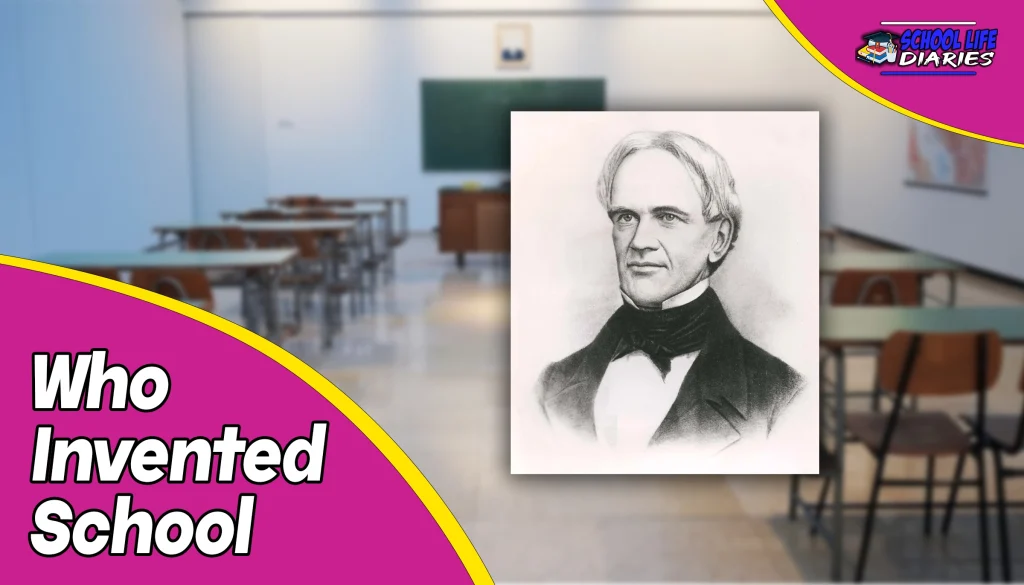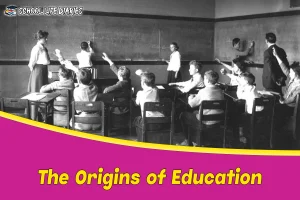Are you curious to know who invented school? The concept of formal education has been around for centuries, but it has gone through significant changes over time. In this article, we will explore the history and evolution of education, and find out who can be credited for inventing school.
Introduction
Education is an essential part of human development, and it has been a significant factor in shaping the world we live in today. From ancient times to the modern era, education has undergone a dramatic transformation, and it continues to evolve at a rapid pace.
In this article, we will explore the origins of formal education, and its evolution through the ages, and discover who can be credited with inventing a school.
The Origins of Education
Education has been around for as long as humans have existed. Early humans learned from their surroundings, observing and experimenting with their environment to develop skills necessary for survival. With time, they started to pass their knowledge and skills down to the next generation through storytelling, art, and rituals.
The concept of formal education, however, is believed to have originated in ancient civilizations such as Egypt, Mesopotamia, and India. These societies had a hierarchical system, and education was reserved for the elite, who were trained to become rulers, priests, and bureaucrats.
The Evolution of Education
The idea of education spread throughout the world, and it continued to evolve over time. The Greeks and Romans, for example, had a more inclusive approach to education, where citizens were encouraged to learn reading, writing, and arithmetic. This approach paved the way for the development of universities and higher education.
During the Middle Ages, education was dominated by the Catholic Church, which established schools and universities throughout Europe. The Renaissance saw a revival of classical learning, which led to the establishment of secular schools and the rise of humanism.
The Industrial Revolution had a significant impact on education, as it led to the development of public education systems and the introduction of compulsory schooling. This period also saw the establishment of teacher-training colleges and the development of modern pedagogy.
Who Invented School?
So, who can be credited with inventing a school? The answer is not straightforward, as the concept of formal education has evolved over time and has been shaped by many individuals and societies.
One of the earliest pioneers of formal education was Confucius, a Chinese philosopher who lived in the 5th century BCE. He believed that education was the key to social order and advocated for the establishment of schools to educate future leaders.
Another influential figure was Plato, a Greek philosopher who lived in the 4th century BCE. He founded the Academy in Athens, which is considered to be the first institution of higher learning in the Western world.
During the Middle Ages, the Catholic Church played a significant role in education, with the establishment of schools and universities throughout Europe. It was during the Renaissance that the concept of secular education gained prominence, thanks to the likes of Desiderius Erasmus and John Amos Comenius.
In more recent times, the Industrial Revolution saw the rise of compulsory education and the development of modern pedagogy. Figures such as Horace Mann and Maria Montessori played a significant role in shaping modern education systems.
Related Article: Does Life Get Better After High School?
FAQs:
Q1. When was the first school established?
The first school is believed to have been established in ancient civilizations such as Egypt, Mesopotamia, and India, where education was reserved for the elite.
Q2. Who is considered the father of modern education?
Horace Mann
Q3. Who developed the Montessori method?
The Montessori method was developed by Maria Montessori, an Italian physician, and educator, in the early 20th century.
Q4. What is the importance of education in modern society?
Education is essential for personal development and growth, and it plays a significant role in shaping the future of society. It provides individuals with the skills and knowledge needed to succeed in life, and it also helps to promote social and economic development.
Q5. How has technology impacted education?
Technology has had a significant impact on education, with the development of online learning, educational software, and digital tools. It has made education more accessible and has opened up new opportunities for distance learning and lifelong learning.
Q6. What are some current trends in education?
Some current trends in education include personalized learning, project-based learning, and the use of technology to enhance learning. There is also a growing emphasis on STEM education, as well as social and emotional learning.
Conclusion: Who Invented School?
The concept of formal education has been around for centuries, and it has evolved significantly over time. From ancient civilizations to the modern era, education has been shaped by many individuals and societies, and it continues to evolve at a rapid pace.
While it is difficult to pinpoint who can be credited with inventing the school, we can acknowledge the contributions of many individuals and societies who have helped shape modern education systems.
As we move into the future, it is essential to continue to innovate and adapt to new challenges and opportunities in education. Whether it is through personalized learning, technology, or new teaching methods, the future of education looks bright.
So, who invented school? The answer is that it is a collaborative effort that many individuals and societies have shaped over time. Nonetheless, we can all agree that education is a vital part of human development, and it will continue to play a significant role in shaping the world we live in today.






